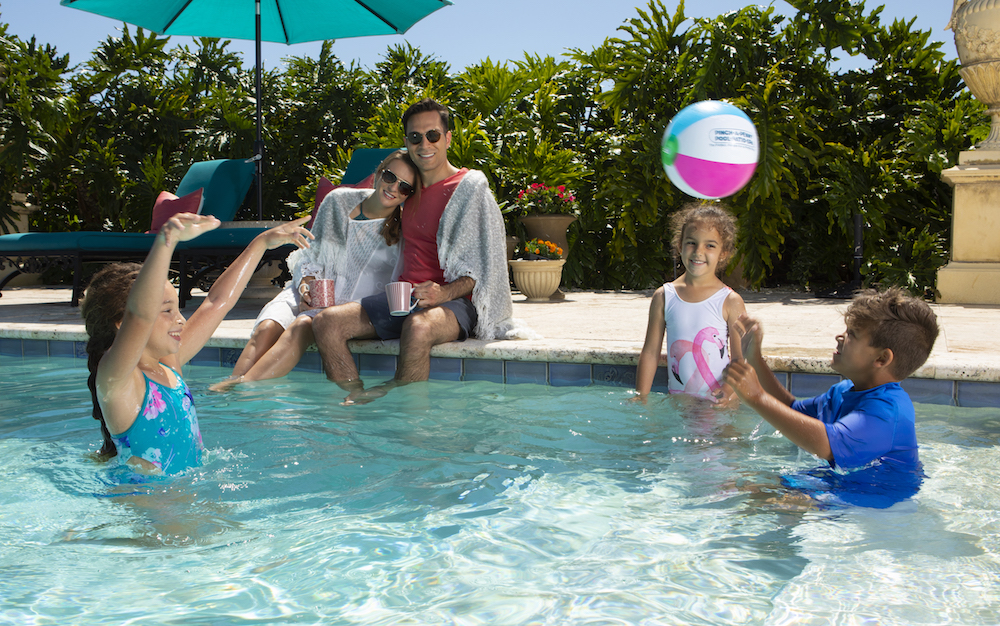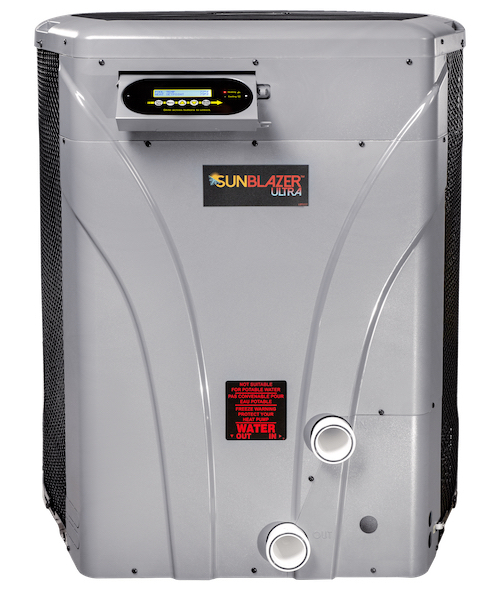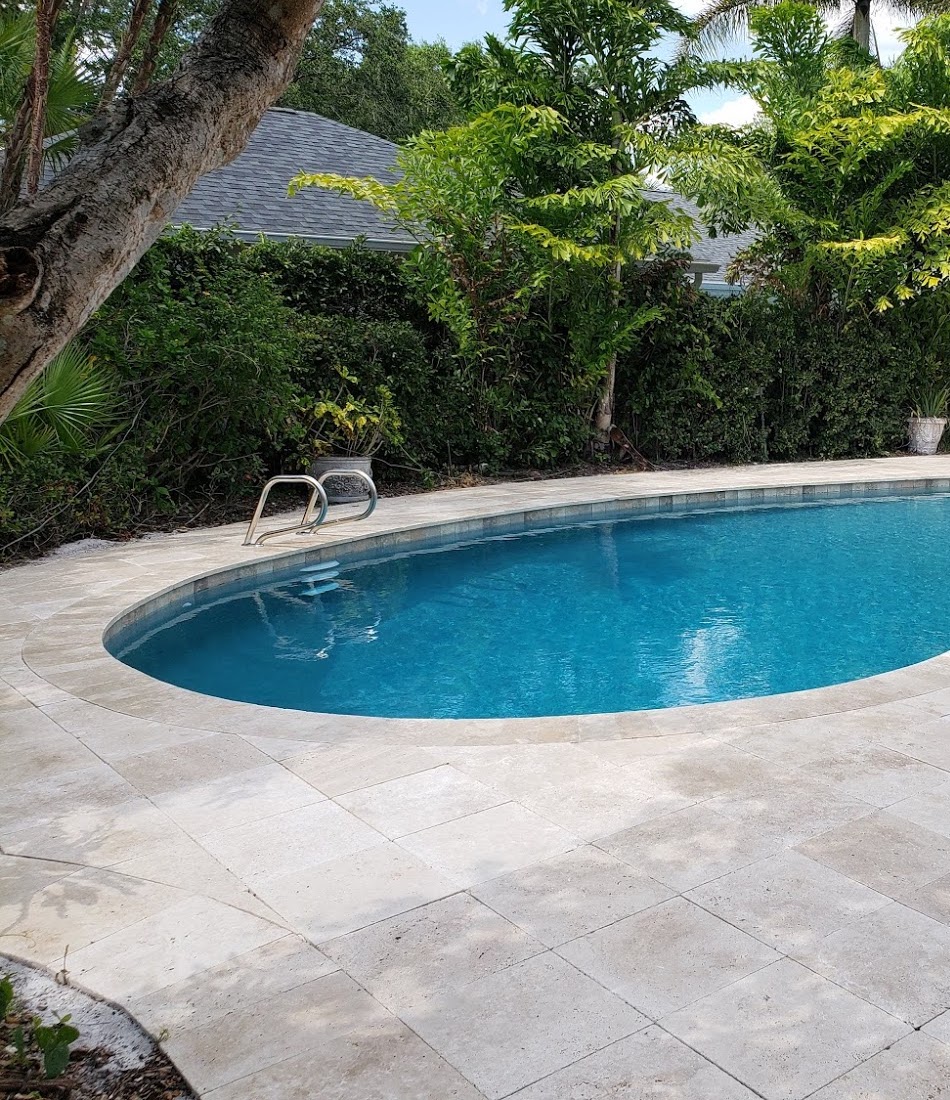The cold winter months are no excuse to let up on pool maintenance. If you don’t keep the proper chemical balance it will cost you more in products and time in the spring. It could also lead to staining or damage to your equipment or finish.
In order to properly maintain your pool during this time, you should reduce the pump operation time from 9:00 AM to dark. In addition to this, you should test the pool water at home at least once a week. For more in-depth analysis, bring a water sample to your local Pinch a Penny store about once a month.
Recommendations for water balance
- Chlorine- Use enough tablets and a low setting on the chlorinator to keep a reading of 2 to 4 ppm. This will provide a consistent amount of chlorine.
- pH- Maintain your pH at around 7.4. Very high pH will promote the buildup of scale, while low pH is corrosive on the finish of most pool surfaces and equipment. Neither is good!
- Alkalinity- To help buffer your pH, keep the alkalinity balanced in the 80-120 ppm range.
- Calcium Hardness- It is still important to protect your pool surfaces and finishes in the winter. When the calcium is too low it can attack pool plaster, resulting in staining and etching. Too high and it will lead to deposits and stains. Maintain a minimum of 200 ppm.
- Conditioner/Stabilizer- Maintain at least 40 ppm to reduce UV degradation of your chlorine. The winter sun is not as strong as the summer sun, so you can operate at the lower end of the range.

What should I do with my salt cell during the winter?
When the temperature gets below about 60 degrees Fahrenheit your cell will most likely shut itself off automatically. During the winter months, the amount of chlorine needed from your salt cell to keep the pool clean is reduced. This is due to the fact that it is difficult for bacteria to grow in cold temperatures. If you wish to manually turn off the cell, keep a tablet or two of chlorine in a floating chlorinator to keep the level consistent.
Should I be concerned about algae during winter?
Though the growth rate of algae slows down as water gets colder, we recommend keeping the free chlorine level between 2 and 4 ppm, as mentioned above. In some areas it's possible to see steady temperatures above 60 degrees in January or even February, giving algae a chance to grow. Don’t risk it. Maintain your free chlorine levels and add a dose of All In One Algaecide weekly.
What do I do with my automatic pool cleaner in the winter?
You should keep it running for around four hours every day to help keep your pool balanced and looking great, even if you are not swimming. This is assuming you don’t have a cover or leaf net on your pool.
Does swim season have to end?
Do you want to extend your summer? You can with a pool heater! With both natural gas and electric heaters, there is a solution for everyone. You can also get into your pool earlier in the spring, meaning you can swim year-round in some climates. Your kids and family will love the added time to play and swim in the pool. Learn more about pool heaters on our blog.
If you have additional questions or are looking to close your pool for the season with a winterizing pool kit, call your local Pinch A Penny!

Share This Post

